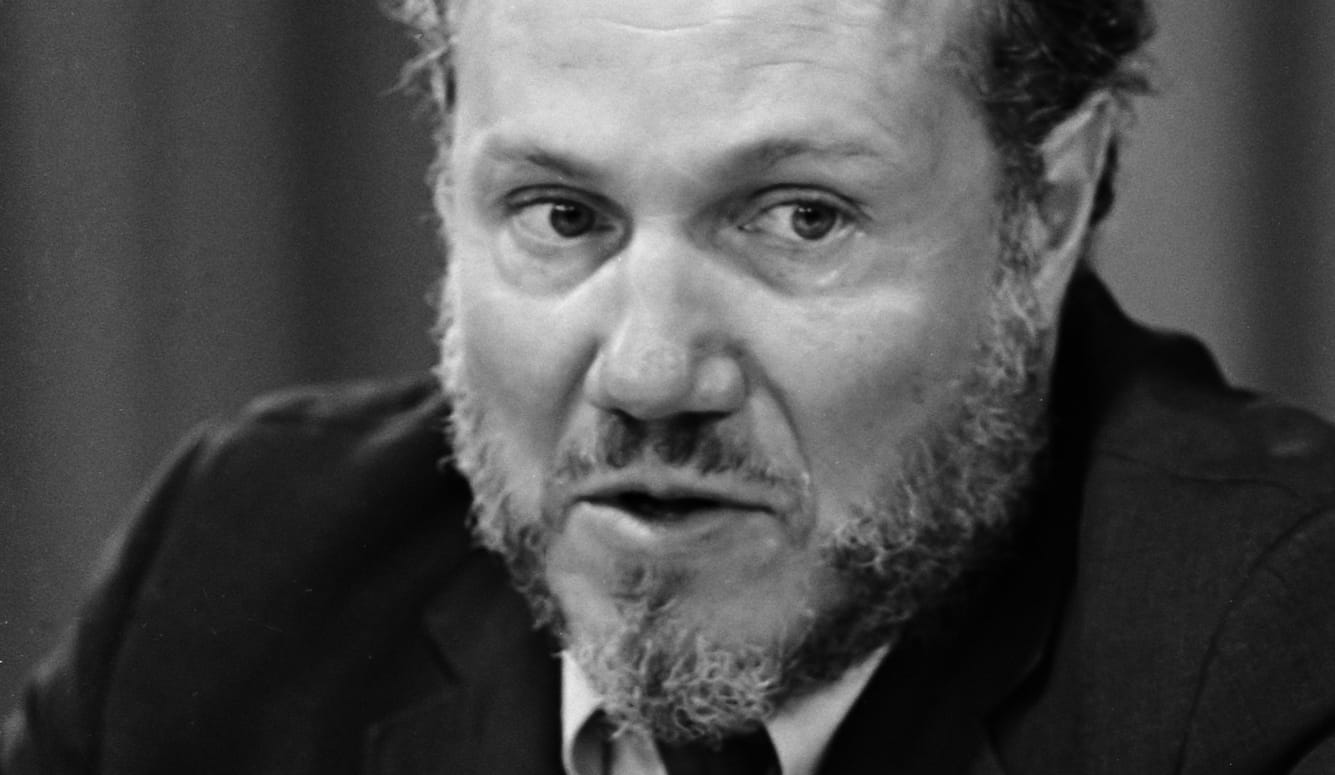Politics
A Minority of One
A valuable new collection of wartime letters written by Leslie Fiedler shows how politically astute the budding literary critic was about communism.

A review of Writing Home: Selected World War II Letters of Leslie Fiedler ed. Samuele F.S. Pardini, 464 pages, E State University of New York Press (December 2024)
Upon his death in 2003, a number of obit writers referred to American literary critic Leslie Fiedler as “the wild man of literature.” Typical of this characterisation was a parting salute in Slate, in which Sam Tanenhaus remarked, “Fiedler was the original chest-thumping extrovert of American criticism, and no one did it better.”
This rowdiness was evident in the article that made his critical reputation, “Come Back to the Raft Ag’in, Huck Honey,” published in Partisan Review in 1948, when Fiedler was at the tender age of 31. That essay dared to suggest that the male bond between Huck Finn and Jim was homoerotic. His seminal book, Love and Death in the American Novel, published twelve years later, was equally controversial. Fiedler demanded that American novelists grow up and dare to deal with sexuality rather than retreat into themes of violence and death:
Our great novelists, though experts on indignity and assault, on loneliness and terror, tend to avoid treating the passionate encounter of a man and a woman, which we expect at the center of a novel. Indeed, they rather shy away from permitting in their fictions the presence of any full-fledged, mature women, giving us instead monsters of virtue or bitchery, symbols of the rejection or fear of sexuality.
But Fiedler was controversial even before 1948. Having trained as a Japanese cryptologist, he left the US to serve in the Pacific theatre as a naval intelligence officer during World War II. A valuable new collection of the letters he wrote to his wife and children while stationed there provides a humane intellectual’s perspective on the war. In particular, that correspondence shows how politically astute Fiedler was about communism.
Fiedler found much that was repellent about the war. He reported being sickened by hearing “lectures on poisonous gases,” which euphemistically described these weapons as humane. He was equally disgusted by an Ernie Pyle column which “told of meeting old friends of Africa and Italy in England fat and well-clothed—and of how saddened at this sight, he longed to see them lean and brown and embattled again.” Fiedler saw this as “perverse, as if behind [Pyle’s] human, easy mask were a disease—that only battle had satisfied and which would demand forever-more battle.”
And of course, the budding literary critic wrote about literature. He found virtues and defects in Ralph Waldo Emerson while reading him in the “head”; Shakespeare was “good and bad”; Hemingway’s For Whom the Bell Tolls was cheaply sentimental; E.M. Forster only had one good book in him (A Passage to India). At the same time, this future champion of genre literature praised comic books and Raymond Chandler.
What gives these letters their bite is how unfashionable—a favourite stance of Fiedler as a literary critic—Fiedler’s premature anti-communism was during the high tide of Soviet–American relations. Owing to the life-and-death struggle between the Nazis and Soviets on the Eastern Front, even rock-ribbed types like Henry Luce were portraying Stalin in cuddly terms (“Uncle Joe”). Hollywood mounted major productions that showed well-fed Kulaks dancing with joy, and that defended Stalin’s murderous purge trials as a necessary anti-fascist measure.





